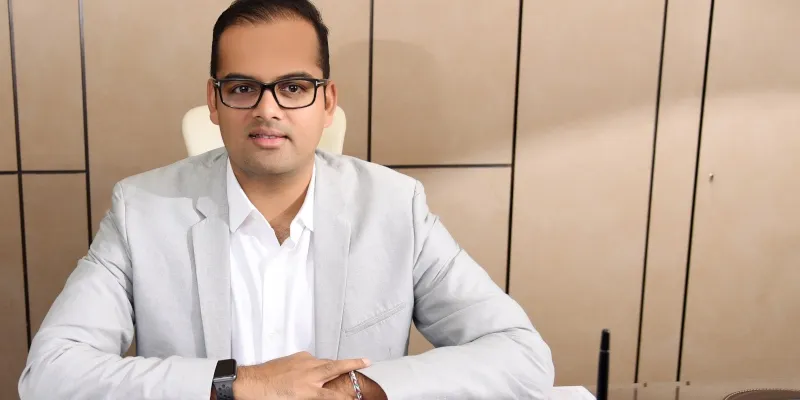The man who backed OYO’s Ritesh Agarwal now talks about his interest in Kabaddi Adda
Anirudh Damani’s Artha Ventures has invested Rs 1.5 crore in Kabaddi Adda as part of a seed fund. The platform aims to be India and the world’s most comprehensive 360° Kabaddi-specific web portal, connecting the entire Kabaddi ecosystem.
Five years ago, Anirudh Damani, Managing Partner at Artha Venture Fund placed his bets on Ritesh Agarwal and his not-so-well-known startup - OYO Rooms, when nobody was looking at the idea of a hotel aggregator.
Today, OYO is a unicorn. And the small undisclosed investment Artha Ventures made in OYO fetched the Damani family a whopping 150x return.
After working in Texas’ oil fields for over seven years, Anirudh returned to India in 2013 with a dream to invest in startups that could shape a narrative for the future, and execute digital solutions for the problems faced in India.
While the family office started investing in its personal capacity in India way back in 2011, it transformed into a big business by 2015, with nearly 53 investments and Rs 12 crore in corpus invested.

Anirudh Damani, of Artha Ventures
Anirudh had earlier briefly mentioned about the venture’s funding in Kabaddi Adda to YourStory. He had also mentioned then the startup has an interesting take on ‘Bharat’. Unlike cricket, where all games (both local and international) are tracked, Kabaddi tournaments, apart from the national league, don’t get tracked.
Kabaddi Adda uses content and analytics to find players that need to be picked in the league.
In a conversation with YourStory, Anirudh explains why he is betting big on Kabaddi Adda.
Here are the edited excerpts of the conversation.
YourStory: Why did you choose to invest in Kabaddi Adda?
Anirudh Damani: Apart from cricket, Kabaddi commands a 70 percent viewership share for sports in India. It has a huge and loyal fan base both in the north and the south, thanks to tournaments like Pro-Kabaddi League (PKL), which have brought Kabaddi into the mainstream. One should just visit the PKL matches in Mumbai or Delhi to witness the amazing fan following this sport has generated in metro cities.
However, the information about Kabaddi remains fragmented even though there is a steady stream of Kabaddi tournaments at the local, state, and regional levels. Kabaddi Adda aims to fill the gap by providing all the information about Kabaddi players and tournaments in one place.
YS: What did you like about the team and the company, and what sets them apart from the others?
AD: I like second/third time entrepreneurs and teams with a balance of tech and business experience. That is what Arvind, Dhanya, Vikas, and Srikanth bring to the table. Arvind is ex-McKinsey and has founded two startups prior to Kabaddi Adda. Dhanya has a PhD in Neuroscience; and Srikanth has a product development background, while Vikas has been in business development for the past six years. Each of them offer a varied skill set that balances the team, and they have known each other for a long time, which is an added plus. My team and I like such diverse team dynamics in content and data analytics play like Kabaddi Adda.

YS: Could you share the details of the latest investment, and what are your expectations?
AD: Artha Venture Fund has invested Rs 1.50 crore in the seed round of a first mover / category creator. We expect the team to utilise this round to solidify its advantage and continue to grow its user base across various channels through innovative product offerings. Kabaddi has a large and loyal following in Bharat that I expect will come to KabaddiAdda.com.
The cost of acquiring these viewers, how to monetise this, and how much is the audience worth will be the focus of this round.
YS: Why the sports sector? What do you see in the space and the market?
AD: India is the largest consumer of internet data on mobile, and I expect that population to grow as internet speed and smartphone penetration continue to increase in the next few years. Most of these new users are going to come from the Bharat that exists outside India, and Kabaddi Adda’s offering caters to a large and growing audience that is looking for content it identifies with, which is Kabaddi.
YS: What sectors are you looking to invest in?
AD: We are thematic investors, investing in three themes - consumption, consumption enablers, and B2B.
YS: What are the key things you would like to tell any entrepreneur who is looking to raise funding?
AD: My first advice to any entrepreneur is to raise as little venture capital as they can and as late as they can. Venture capital is extremely expensive money, which should be tapped into only when it is truly required.
Nonetheless, if entrepreneurs believe they are ready and truly need to tap into this pool of capital, then they should look for the additional benefits that VCs/Angels provide beyond funding. To have a bunch of passive investors on their cap table is the worst thing that a founder can do to the company.
YS: What is the one thing you see in the founder’s DNA that would make you invest in her/his startup?
AD: There are several factors that influence our investment decision, but the one thing that stands out is the awareness/maturity level of the founders when it comes to deal making with VCs.
A founder who understands how the VC ecosystem works is well prepared to deal with term-sheets, share-holder’s agreements, etc., and those who have prepared their company for due diligence while keep monetary and time runway to go through the process – stand out in the crowd.
YS: What is your take on the Indian startup ecosystem and where it is headed.
AD: The early stage ecosystem has hit rock bottom.
There has been a consistent annual reduction in the number of deals that angel networks have done over the past three-to-four years, and they are facing an existential crisis.
They have lost many of the "super angels" because they are getting crowded out by the large number of small-ticket angel investors that have joined these networks.
Secondly, it does not make any sense for a founder who is raising investment to have several passive small-ticket angel investors sitting on their cap table just as it does not make sense for a Super Angel to carry these passive investors.
And finally, the angel networks have failed to educate their investors on why to keep reserves for investing in follow-on rounds. This is a big problem for the founders. However, things are turning around. In the last two years, several Super Angels have started Micro-VC funds to fill in the gap created by the disintegration of the angel investment networks.
Just like us, they write smaller cheques, work closely with the founders by providing active support in business building, and support them in follow-on rounds.
The government has provided support to these funds through the Rs 10,000 crore fund programme, which is slowly but surely changing the face of India’s early-stage ecosystem. It’s only going to get better now.










